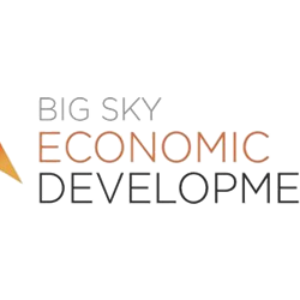Each year the Montana Economic Developers Association recognizes economic development achievements through its 2020 MEDA Award Winners.
There are two categories of awards: Impact Awards and the Anthony J. Preite Champion of Economic Development Award. Impact Awards recognize member organizations that demonstrate valuable and effective approaches to regional economic and community development. The Anthony J. Preite Award recognizes an economic developer who has significantly contributed to the profession, to the association, their economic development organization, and to the communities they serve as a whole.
The seven MEDA 2020 Impact Award Winners include:
Southeastern Montana Development Corporation (SEMDC) Powder River County Bridge Disaster Recovery Effort: SEMDC and Great West Engineering lead a recovery team to assist Powder River County in receiving a $7 million dollar grant to replace and or upgrade four bridges and resurface 18 miles of roads for $8.75 million dollar disaster effort.
Anaconda Local Development Corporation launched a multi-pronged approach to mitigate the effects of the economic shutdown due to COVID-19. ALDC acted quickly with its partners to mitigate the effects of the shutdown on businesses and stood at the forefront of information for opportunities and resources for businesses to keep employees on the payroll. Ultimately, ALDC aided over 30 businesses to make it through the initial COVID closure and reopening. A second Impact Award is given to Anaconda Local Development Corporation for its Anaconda Historic Signs & App Project. Historic building plaques were mounted on over 20 downtown buildings to increase historic education and tourism. In addition, an accompanying app with Montana Historical Society’s Historic Montana website takes users on a virtual tour of selected buildings, neighborhoods, and cultural sites. The Historic Signs project has brought people to the heart of Anaconda to be educated in a whole new light about the culture and history within the central business district.
Big Sky Economic Development’s Space2Place program, created through its Community Development Department, offers micro-grants up to $5000 to individuals and community organizations for creative placemaking projects. The program emphasizes how individual and community efforts can create incremental changes that enhance the beauty, vibrancy, and activation of our spaces, transforming them into engaging places. Space2Place has assisted in the development of twenty-three unique and engaging community assets which has transformed ugly to attractive, underutilized to engaging, and bland to vibrant.
Big Sky Economic Development (BSED) Coulson Park Project is a second MEDA Impact Award for this organization. Big Sky Economic Development, collaborating with the City of Billings and community stakeholders, plan to design and develop Coulson Park which sits next to the Yellowstone River back dropped by the sandstone rimrocks. Through BSED’s hard work, grant writing, community participation and local and city leadership, Coulson Park has recently concluded a master plan and begun the funding process towards development. It was through many public outreach meetings, presentations, and conversations that the vision was not only identified, but passed on throughout the community.
The Choteau Area Port Authority (CAPA) has made great strides in community and economic development as a result of key partnerships, including holding a MEDA Community Review. As a result, CAPA has been able to assess, target, and implement economic development strategies for the community. Progress has been made in four key areas of focus: community enhancement, infrastructure, business support, and tourism and recreation. CAPA initiated the MEDA assessment and has been a supporter, facilitator, and driver of many projects and generated over $100,000 in grants for projects.
Great Falls Development Authority (GFDA) Bridge Financing Project is a prime example of economic development impact. Bridge financing is an effective way to make limited economic development loan capital create greater impact. In the ten years since GFDA’s bridge loan product, it has closed 11 bridge loan packages totaling $16,314,289 which has leveraged more than $121,617,469 in private investment in the Great Falls trade area. Every dollar of bridge loans has leveraged over $7 of investment. Because of their unique nature, each bridge loan project has required services of GFDA in business coaching, business development and lending staff to be involved, as well as a number of volunteer leaders. To date, no loan capital on bridge loans has been lost, and none of the current bridge loans are delinquent.
The MEDA Anthony J. Preite Champion of Economic Development Award is intended for a Montanan who has practiced economic development full-time who has significantly contributed to the profession, to the association, their economic development organization, and to their communities as a whole. MEDA announced the Anthony J. Preite Champion of Economic Development for 2020 is Jim Atchison, Executive Director, Southeastern Montana Development Corporation, located in Colstrip. Atchison has served in economic development for over 20 years and thrived through challenges of boom, bust, fire, flood, and pandemic. In making the 700 mile round trip to Helena to testify on key issues, Atchison will now have this very special award to add to his renown “tool box” for Montana economic development.



